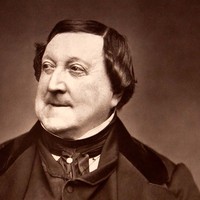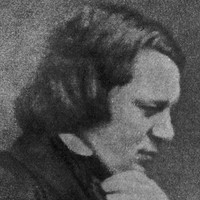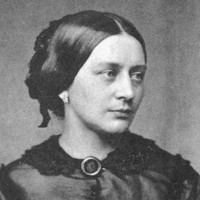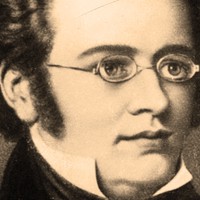Jeremy Denk Plays Schumann’s Piano Concerto
Sponsored By
- September 13-15, 2019

Sponsored By


Gioachino Rossini was the greatest opera composer of his generation. From his first comic farce written at age 18 to his crowning work for the stage, William Tell, he dashed off an astounding 39 operas in 19 years. Penned in 1812 for Venice’s Teatro San Moise, La scala di seta was Rossini’s sixth opera, a sure-handed work from a composer just 20 years old.
The silk ladder that gives this opera its title is the means by which the protagonist, Dorvil, maintains a secret affair with Giulia, climbing up through her bedroom window each night. The farce begins one morning when Dorvil is blocked from his usual means of egress by the appearance of Giulia’s cousin and servant.
The overture that prepares this scene begins with a lively flourish, and then it settles into a lyrical introduction led by the oboe. The violins re-enter with scurrying material, launching an energetic theme in perpetual motion. The overture’s second thematic group showcases Rossini’s keen musical wit and knack for scene painting. First the flute and clarinet begin with a lovely duet that stumbles into a hiccupping descent. This is answered in turn by finger-wagging commentary from the oboes, and then a round of chuckles from the clarinets, echoed by the oboes and flute. Incredibly, the opera’s entire plot seems to have been summarized in a few seconds of music: a romantic ascent, a faltering exit, an exchange of reproaches, and, ultimately, a chorus of laughter.
— © Aaron Grad
Aaron Grad ©2010

From Robert Schumann, one of the quintessential figures of music’s Romantic era, we have a Piano Concerto proudly bearing all the hallmarks of Romanticism. It is explosively virtuosic. As he did much of his piano music, Schumann intended the Piano Concerto for his wife and muse, Clara Schumann, perhaps the most brilliant keyboard virtuoso of her generation; this concerto’s demands testify to her ability. But what’s more, it is a work rife with searing expressivity, discernible, as with much of Schumann’s music, as a dialogue between the composer’s alter egos: Florestan, the masculine (in 18th-century parlance) and extroverted; and Eusebius, the feminine voice of tenderness and pathos. Contained within the concerto’s pyrotechnic vigor, then, is a deeply human statement, as dramatically compelling as it is thrilling to the ear.
The concerto begins with an emphatic proclamation, the opening volley clearly belonging to Florestan: the full orchestra strikes a forte E, the dominant of the home key of A minor providing a launching pad for an impassioned cascade of chords in the piano. Eusebius answers with a keening melody in the oboe, marked by a memorable descending threenote motif. This exquisite theme reveals Schumann to be, if not quite the equal of Mozart and Schubert, whose fonts of melodic invention seemingly never ran dry, nevertheless one of the nineteenth century’s most gifted melodists when inspiration struck.
The short Intermezzo that serves as the concerto’s second movement is fully given over to Eusebius. The piano and orchestra trade graceful staccato fragments; the flute sits prominently atop featherweight ensemble textures. Even when the music slows to more earnest strains, the luxuriant string lines remain tender and warm. At the Intermezzo’s conclusion, Schumann recalls the consequential three-note motif of the opening movement, which sends the Concerto without pause into its triumphant finale.
— © Patrick Castillo
Patrick Castillo ©2014

Sometimes the most transcendent moments in the concert experience come after the scheduled concerto is finished and the piano soloist, at the urging of an enthusiastic audience, sits down to play a surprise encore. For this concert, which opened our 2019-2020 season, SPCO Artistic Partner Jeremy Denk played Clara Schumann’s Romance, Op. 21, No. 1, and, as great as the performance of Robert Schumann’s Piano Concerto was, the intimacy and emotional impact of this heartbreaking Romance is what remains burned indelibly in the aural memories of those present for this concert.
Clara wrote this work at a most difficult time, in 1855, when she was separated from her husband, Robert, due to the tragedy of his suicide attempt a year earlier and his self-admittance to a mental asylum where he remained until his death in 1856. Clara was not permitted to see him until two days before his death. The set of three Romances, of which this piece is a part, were composed in 1853, but Clara returned to these works in 1855 and replaced the original A Minor Romance with the one heard here. There can be no doubt that the tragedy of her circumstances called for a new outpouring of emotion directly into her composition. This work reveals the scope of Clara’s gifts, and one can only imagine how much more incredible music she might have composed if her compositional inclinations had been encouraged rather than stifled by systemic sexism. Even so, she composed a piano concerto, chamber music and songs, and a significant body of solo piano repertoire, in addition to being the leading concert pianist of her day and a mother of eight children.
© Kyu-Young Kim
Kyu-Young Kim ©2021
 Listen to Audio
Listen to Audio
While working full-time as a teaching assistant, taking compositions lessons twice a week, and playing viola in a student orchestra, the 17-year-old Franz Schubert managed to write new music at an astonishing rate that averaged at least 65 measures of music every single day. His efforts that year included his Symphony No. 2, which at most might have received a reading from a student orchestra. Not a note of his music had reached the public yet, and during his entire short life he never managed to secure a single performance of any symphony.
As a student composer in Vienna, Schubert could not help but be engulfed by the towering achievements of Haydn, Mozart and Beethoven (who had by then debuted eight of his nine symphonies). Like Beethoven before him, Schubert used the instrumentation and general outline of Haydn’s final London symphonies as a point of entry. In Schubert’s Symphony No. 2, the instrumentation, slow introduction and the use of a minuet third movement instead of a Beethovenian scherzo all point to Haydn’s influence. One particular trick found all over Haydn’s symphonies comes in the Allegro vivace body of Schubert’s first movement, when the main theme enters in the strings at a pianissimo dynamic before being repeated fortissimo by the full orchestra.
The Andante second movement takes the form of a theme and variations, with a simple and song-like theme that adds a playful extra measure in its second half. The climactic fourth variation moves to C minor, which returns as the surprising key center for the Menuetto. Before the finale launches, four introductory measures bridge the harmonic distance back to the home key of B-flat major. Then, like horses on the hunt, the orchestra gallops off at a Presto tempo.
— © Aaron Grad
Aaron Grad ©2016
Join the orchestra and fellow SPCO supporters after the concert on Saturday to celebrate The Saint Paul Chamber Orchestra’s 61st Season! Separate ticket purchase required – please click here for more information.
Get driving directions and find nearby parking.
Find dining options close to the venue.
View seating charts to find out where you'll be seating.
SPCO concerts are made possible by audience contributions.
For exclusive discounts, behind-the-scenes info, and more:
Sign up for our email club!
